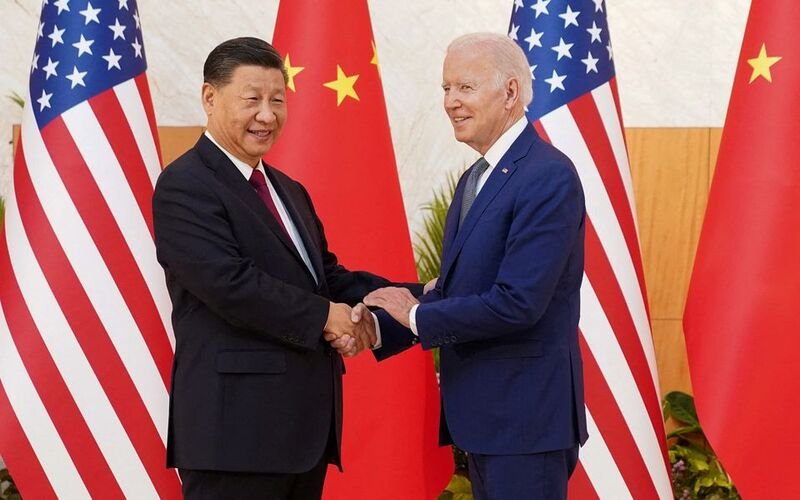On Thursday, China said that the Biden administration’s intention to restrict the amount of Chinese content in batteries eligible for significant tax incentives for electric vehicles beginning next year violates international trade rules and will cause disruptions in global supply chains.
According to the proposals, investors in the supply chain for electric vehicles (EVs) in the United States will be ineligible for tax credits if they utilize more than a trace quantity of crucial materials from China or other nations that are considered to be a “Foreign Entity of Concern” (FEOC).
According to He Yadong, a spokeswoman for the Ministry of Commerce, “targeting Chinese enterprises by excluding their products from the scope of a subsidy is a typical example of a policy that is not market-oriented.”
“Many World Trade Organization members, including China, have expressed concern about the discriminatory policy of the U.S., which violates the WTO’s basic principles,” said the representative.
As a result of China’s preeminent position in the global battery supply chain, policymakers in the United States and Europe have taken action in response to concerns that low-cost electric vehicles manufactured in China will flood their respective markets.
The European Commission is currently conducting investigations to determine whether Chinese businesses receive improper state subsidies.
Two laws have already been approved in Washington that expressly exclude investors from being able to profit from a $6 billion allocation of tax credits for batteries and essential minerals, as well as subsidies of $7,500 for every new energy vehicle manufactured, should they use FEOCs in their supply chains. These laws make it clear that investors are not eligible to get these benefits.
Specifically, China, Russia, North Korea, and Iran are included in this category. The regulations will go into force in 2024 for batteries that have been built and in 2025 for materials that are considered important.
The administration of Vice President Joe Biden of the United States of America is also recommending strict guidelines, one of which is a threshold of 25% ownership, to determine whether a corporation is under the control of an FEOC.
“By establishing ‘glass barriers’, the U.S. is doing more harm than good to the development of EV technologies and the industry more broadly,” he stated, pointing out that the proposals would “seriously disrupt international trade and investment” .
It is estimated that China is responsible for roughly two-thirds of the world’s lithium processing capacity and seventy-five percent of the world’s cobalt capacity. Both of these elements are utilized in the production of batteries.
Analysts, on the other hand, have questioned whether the hyperbole that the United States and the European Union are using on the possible hazards is warranted by China’s role in global battery supply chains.
“There is a great deal of exaggeration surrounding this. Dan Marks, a research fellow for energy security at the Royal United Services think tank, stated that he is uncertain whether the actions that the European Union or the United States are contemplating are proportionate to the magnitude of the risk.
It is more accurate to argue that the strategies being implemented in Europe and the United States are, in fact, industrial strategies. Simply put, they are concerned with having industries that are competitive and able to endure.










































Comment Template